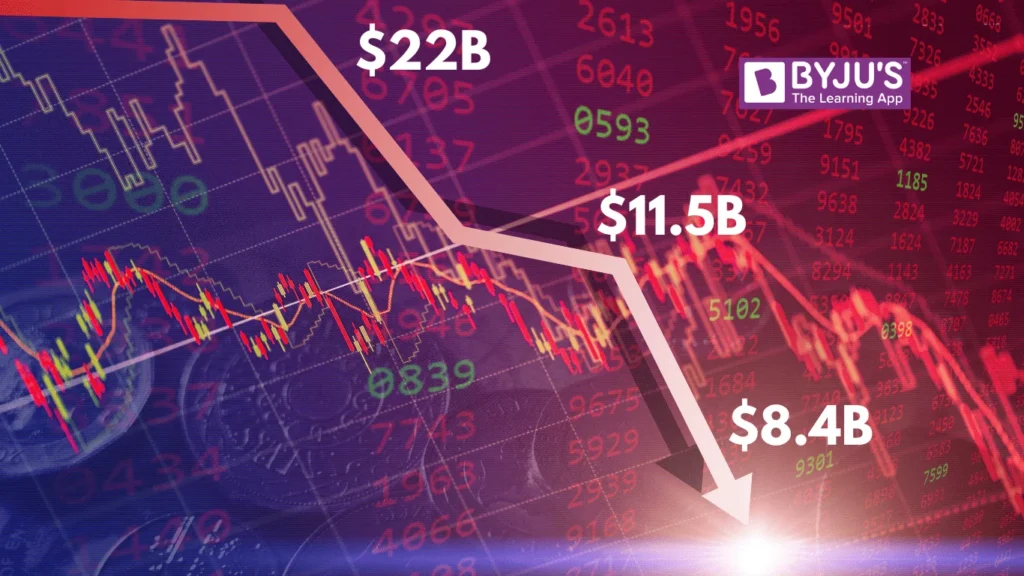According to a TechCrunch article that cites company disclosures,Global asset manager BlackRock has once again lowered its value of Indian ed-tech unicorn Byju’s, this time by over 95% from $22 billion to $1 billion. Byju’s was India’s most valuable start-up, valued at $22 billion.
The downgrade comes as no big surprise. The mutual fund investor valued Byju’s shares in October 2023 at about $209.6, a considerable decrease from the peak price of $4,660 in 2022. The corporation owns less than 1% of Byju. On January 12, BlackRock will make its financial results public. Similarly, Byju’s did not immediately reply to Reuters’s request for information regarding the valuation adjustment.
According to TechCrunch, BlackRock’s action comes after Byju’s valuation has been dropped several times in the last 12 months. Byju’s was valued less than $3 billion by tech investor Prosus NV in November of the previous year; however, BlackRock reduced its estimate to about $8.4 billion in May.

Major Reasons for the Downfall of Biggest Indian Unicorn:
Byju’s was getting ready to go public through a SPAC offering in early 2022, with a potential $40 billion market valuation for the business. However,according to a source familiar with the situation said, Byju’s had to postpone its IPO preparations after Russia’s invasion of Ukraine in February caused stock markets to decline. Byju’s commercial prospects declined in tandem with the deteriorating market conditions. Investor pressure on the corporation to rectify issues it had previously ignored started to build.
The Enforcement Directorate (ED) sent a warning to the company in late November alleging that it had violated foreign exchange legislation. The company is required to pay a fine. Byju’s is under increased strain due to regulatory monitoring, which affects its overall financial standing and market perception.
Also Read: 6 Celebrity backed start-ups that became unicorns
Another issue Byju is struggling with right now is: It is having difficulty raising money, paying salaries, and paying off its debt, which exceeds $1 billion. The business revealed last month in a much-delayed statement that it had fallen short of its revenue objective for the fiscal year that ended in March 2022.
Additionally,the unexpected and high-profile exits of three key board members and auditor Deloitte in June, Byju’s CFO, Ajay Goel, quit the firm in less than seven months to rejoin Vedanta in late October.
